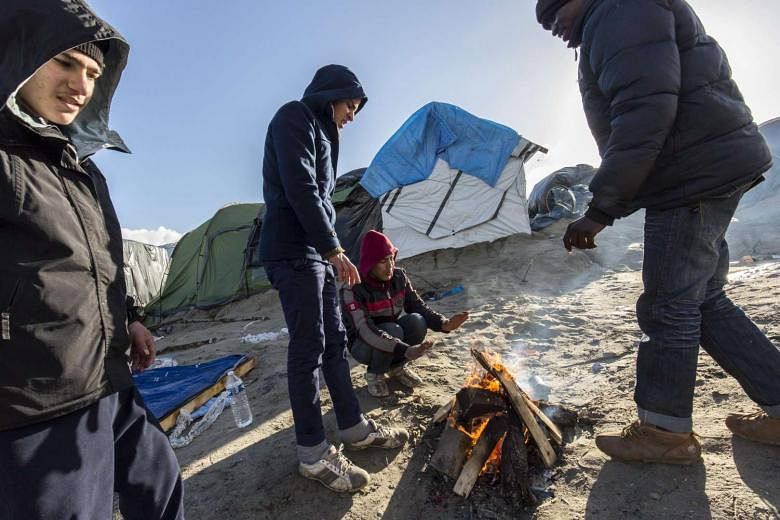BRUSSELS (AFP) - Belgium on Tuesday said it had temporarily reintroduced border controls with France in order to halt the arrival of migrants from the Calais "Jungle" camp, in a new blow to the EU's passport-free travel area.
Interior minister Jan Jambon said most of the migrants currently in Calais, a port in northern France, eventually wanted to get to Britain and would use Belgium as a transit route.
"We have informed the European Commission that we will temporarily depart from Schengen rules," Jambon told a press conference in Brussels, referring to the 26-country borderless zone.
Jambon said the operation would involve 250 to 290 police officers and would also involve checks around the Belgian port of Zeebrugge, from where ferries sail to Britain.
"We will carry out border controls at different strategic locations, at spots used by smugglers which the police have detected," he said.
France was to evacuate residents of the refugee camp in the northern port city of Calais on Tuesday, though demolition of half of the camp was delayed as a French court postponed ruling on the matter until at least Wednesday or Thursday.
"The dismantling of what has been called the 'Jungle' is possible and real. We have already seen a movement of migrants in transit," Jambon said.
"There is the potential for thousands of migrants coming here - not asylum seekers but migrants in transit who do not want to stay in France or Belgium but to go to Britain," he said.
"It is an issue of keeping order."
There was no immediate reaction from the European Commission, the EU's executive arm.
With Belgium, there are now seven countries in the Schengen area that have reintroduced border controls in response to a record flow of migrants and refugees to Europe fleeing war and poverty in the Middle East, Africa and South Asia.
Under Schengen's rules, states are allowed to bring back frontier checks for up to six months in the face of exceptional circumstances such as an abnormally large flow of migrants.
But the EU may allow member states to do so for up to two years if Greece, the main European landing point for migrants, fails to meet a May deadline to control the influx of migrants.

